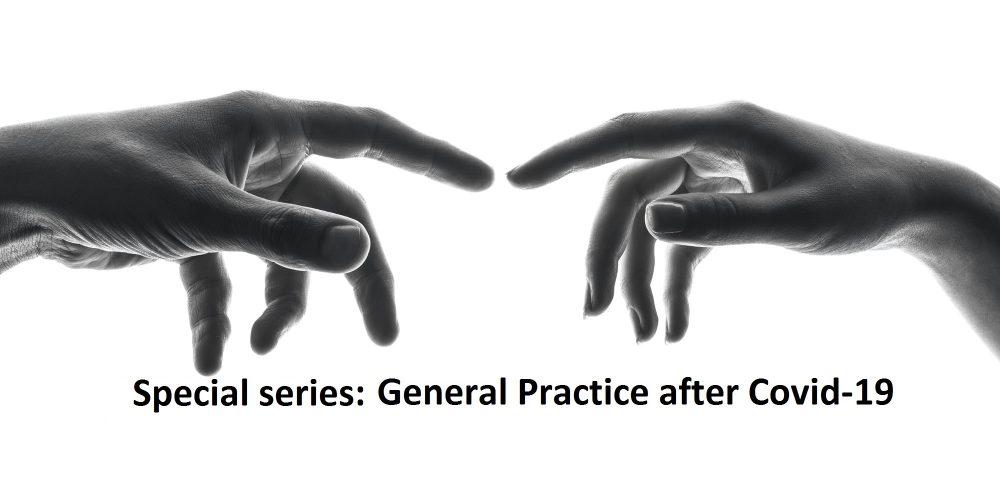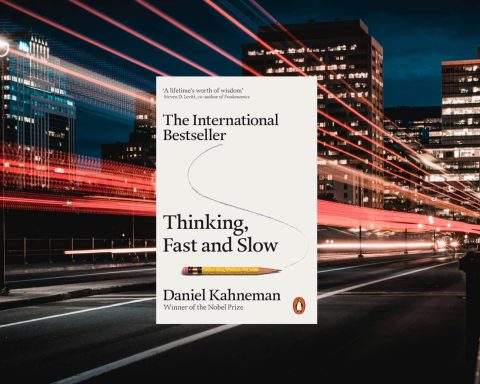
At the time of writing, over 22 million people in the UK have received their first dose of a COVID-19 vaccine.1 This spells the beginning of the end of a long and arduous battle to gain control over a respiratory virus that has overturned our realities during the last year. With the proverbial ray of hope now peering through the end of this dark pandemic tunnel, it is perhaps time to start contemplating life post-Covid. So, what is next for general practice in the UK? Or rather, how should general practice reflect on its experience of the pandemic in order to inform its future?
Five lessons from the COVID-19 Pandemic
1. Chronic underfunding of public health and primary care services has serious and unavoidable consequences
Marmot’s most recent landmark report unequivocally links the devastating outcomes of the COVID-19 pandemic to the longstanding underfunding seen in public health and healthcare that has caused health, social and economic inequalities in our nation to widen.2 The pandemic has exposed and magnified pre-existing societal disparities. As a result of austerity, poverty and poorer health have risen in the last decade. In addition, the resources, infrastructure and workforce required to ensure adequate preparedness and response to a pandemic have been eroded. These factors have undoubtedly contributed to the UK’s devastating COVID-19 death toll.
The pandemic has exposed and magnified pre-existing societal disparities.
The UK government’s response to the COVID-19 pandemic was slow, fractured, difficult to scale up and at times both inefficient and ineffective. Opportunities were missed to connect the knowledge and resources within primary care and public health in order to generate a cohesive and co-coordinated strategy to control and contain the virus.3 The wealth of data contained in primary care health records was untapped and disconnected from operational plans within public health. This reveals a significant shortcoming in the current structure of healthcare and public health systems in the UK.
3. Primary care has played a vital role in the roll-out of the vaccination programme
General practice and other primary care settings adapted quickly and effectively to dispense the COVID-19 vaccine at record scale. This is a testament to the value and dedication of primary care teams. It indicates the potential wide-reaching change that can be achieved once primary care is appropriately funded and adequately supported. Specifically, the function fulfilled by Primary Care Networks (PCNs) during the roll-out of the vaccine programme, has demonstrated the benefits of sharing community resources and co-coordinating healthcare delivery at a local primary care level.4,5
4. Primary care must to be able to provide community-competent care
This has been vital to addressing a heterogeneity of concerns in order to increase vaccine confidence and uptake. General practice is about community-situated healthcare. The pandemic has highlighted the necessity for GPs to know, understand and be equipped to meet the specific health needs of the communities they serve. When this was achieved, GPs were able to deliver services collaboratively and in turn witnessed tangible health improvement.6,7
5. Primary care must prepare to face a substantial increase in workload
In the aftermath of the pandemic, primary care services will encounter a surge in demand.
Five ways General Practice should change
1. Secure generous funding
In order to positively and radically shape the future of general practice, the government must be convinced of the value of investing in primary health care. Funding should go beyond being adequate, rather it should be generous and reflective of a society that cares for the wellbeing of all of its citizens.
2. Become better integrated with public health, social care and secondary systems
This will ensure that general practice has a prescribed and protected role in the matrix of the healthcare system. It would also improve communication and continuity of care for patients across these interfaces, facilitating a safer and more holistic care journey.
3. Dictate the role and structure of Primary Care Networks
General practice should be afforded greater autonomy to decide, design and direct primary care delivery without purse strings attached. PCNs can facilitate a more efficient and multi-disciplinary primary care service but the driving force must be the pursuit of high-quality holistic patient-centred care, not tick-boxes, targets and funding streams.
4. Practise with a deep and empathetic understanding of their community
This will require drastic transformation of the current time-constrained consultation model. General practitioners must be allowed the luxury of time to foster deep doctor-patient relationships. GPs must be able to provide continuity of care and hold a comprehensive understanding of their patients’ realities. General practices should represent a safe and accessible space for all members of the community.
5. Maximise and diversify the primary care workforce
We must build a workforce that is properly trained, sustained and nurtured in order to increase both recruitment and retention within general practice. This requires high-quality specialty training immersed in the context of general practice. We should abolish the current training structure which requires a GP registrar to spend greater specialty training time in a hospital setting than in primary care. Trainees cannot be expected to master the sophisticated art of general practice if the training pathway does not sufficiently prioritise clinical work that is community-based. The solution to this does not lie in lengthening GP training but rather in providing GP registrars with more dedicated time and mentorship within the setting they will be required to navigate as primary care physicians.
Throughout training and beyond, GPs should be generously supported to achieve work-life balance and encouraged to diversify their working structure by pursuing other areas of interest. Protecting the mental health and broader well-being of the general practice workforce must become a priority.
Ultimately, change is on the horizon. The end of the COVID-19 pandemic will invite opportunities for reflection and growth. The future of general practice in the UK must be dictated by those committed to a primary healthcare that is excellent and equitable.
References
1. UK Government website. People vaccinated. 2021. https://coronavirus.data.gov.uk/details/vaccinations
2. Marmot M, Allen J, Goldblatt P et al. Build Back Fairer: The COVID-19 Marmot Review. The Pandemic, Socioeconomic and Health Inequalities in England. London: Institute of Health Equity. 2020. https://www.health.org.uk/sites/default/files/upload/publications/2020/Build-back-fairer-the-COVID-19-Marmot-review.pdf
3. Pettigrew L, van Schalkwyk M, Rechel B et al. Where’s the integration between public health and primary care in the response to covid-19? BMJ Opinion. 2021. https://blogs.bmj.com/bmj/2021/02/18/wheres-the-integration-between-public-health-and-primary-care-in-the-response-to-covid-19/?utm_campaign=shareaholic&utm_medium=twitter&utm_source=socialnetwork
4. Pettigrew L M, Kumpunen S, Mays N. Primary care networks: the impact of covid-19 and the challenges ahead. BMJ. 2020; 370 :m3353
5. Parkinson S, Smith J. Primary care networks in a time of pandemic. BJGP Life. 2020. https://bjgplife.com/2020/11/11/primary-care-networks-in-a-time-of-pandemic/
6. NHS England. GP determined to put in personal call to every at-risk patient yet to take up COVID-19 jab offer. 2021. https://www.england.nhs.uk/2021/02/gp-determined-to-put-in-personal-call-to-every-at-risk-patient-yet-to-take-up-covid-19-jab-offer/
7. Pidd H. Inspiring confidence: Liverpool GPs tackle the vaccine race gap. The Guardian. 2021. https://www.theguardian.com/world/2021/feb/04/inspiring-confidence-liverpool-gps-tackle-the-vaccine-race-gap
Featured photo by Warren Wong on Unsplash








